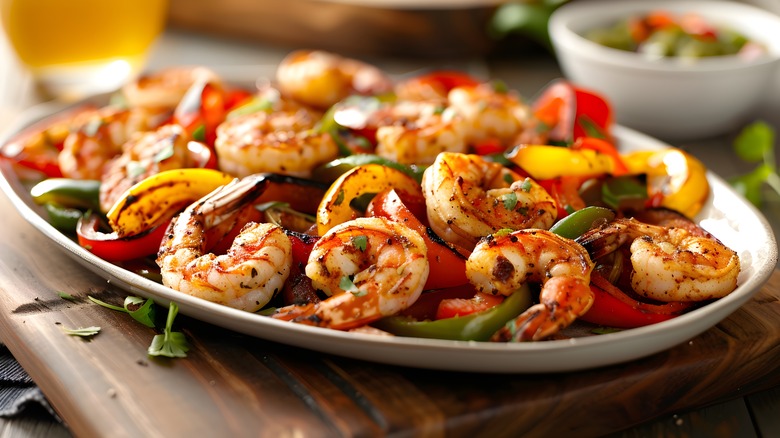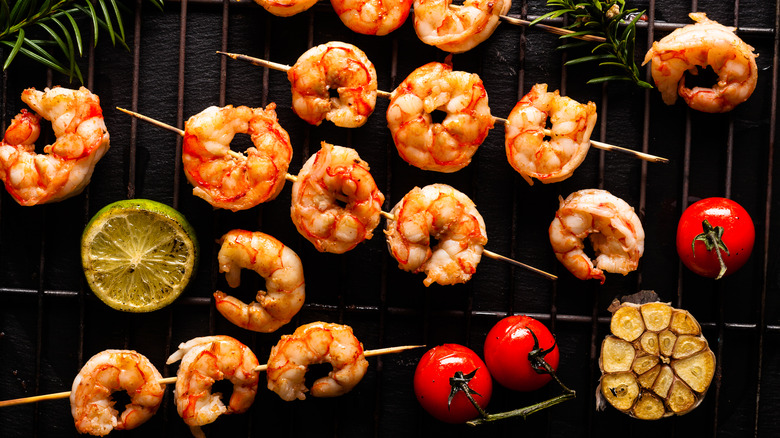A Hot Grill Is Key To Avoid Overcooked Shrimp
For seafood lovers, shrimp ranks as one of the most loved dishes. It's succulent, tender, and simply delicious. Best of all, it cooks incredibly fast, so your meal is ready in just a few minutes. But be warned that this same speedy advantage could become the reason for a subpar shellfish dish if you overcook them. One way to avoid this misfortune is to cook the shrimp on a hot grill.
On average, grilled shrimp take three to five minutes to cook. If your grill isn't hot enough, the shellfish will cook through before the outside is charred. If you keep them on the fire a bit longer to get those beautiful scorch marks, you'll end up with overcooked shrimp that are dry and rubbery. On the flip side, if the grill is on a high setting, the fire is hot enough to char the seafood within just a few minutes before it's ready to serve. The charring not only creates a visually stunning meal spread, but it also imparts a smoky rich flavor that can transform your shrimp from average tasting to gourmet standard.
More shrimp grilling tips
Another way to prevent grilled shrimp from drying out is to keep the shells on. Most cooks are accustomed to peeling their shellfish before cooking, yet this hard outer layer can serve as a protective covering over the flesh that encourages moisture retention and reduces the risk of overcooking. Additionally, leaving the shell intact is one of the ways to add more flavor to the shrimp, resulting in a tastier dish.
For an extra flavor boost, marinate shrimp before they go on the grill. In that case, you'll need to peel the shrimp first to allow the flavors to penetrate the flesh. Add your preferred seasonings and fresh herbs in a bowl with the shrimp, toss, and leave to soak for about one hour, then grill as usual. A simple hack like skewering the shellfish before grilling can contribute to a delicious finished dish. Being able to handle the shrimp all at once makes placing them on the grill, turning them, and removing them from the fire much easier, therefore, reducing the chances of overcooking in the process of fumbling with too many individual pieces.

